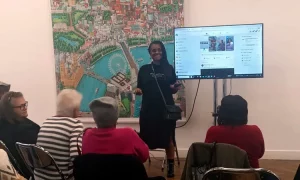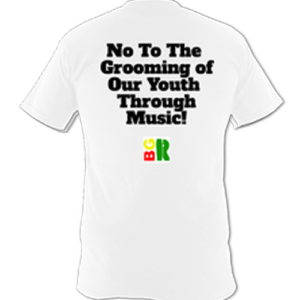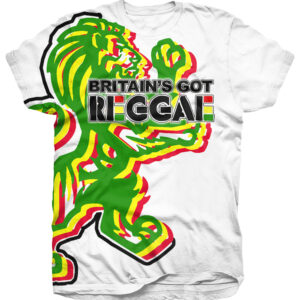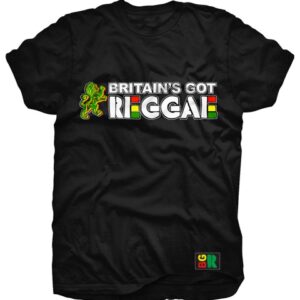Cyrlene (known locally as Mini) runs a start up called Britain’s Got Reggae, which supports up-and-coming reggae artists. She also hosted an event at Islington Assembly Hall to celebrate Windrush Day and International Reggae Day this year, with great success, and has been running workshops at Jean Stokes Community Centre on the history of reggae and ska music. We find out more about her work and what’s next for Britain’s Got Reggae.
How and when did you get into the music business?
I went into the music industry literally by accident, without any experience or knowledge, after a road traffic collision meant I had to leave my job. I suffered post-traumatic stress disorder. I started putting on events, which is where my music journey began. The first was a multi-genre showcase called City Link-Up Unsigned, which I ran in Camden for five years. Within months, I had X Factor and The Voice coming to events and some of the artists went on to secure auditions. A few even made it to live shows. I’ve now got a music business degree, which I graduated from in 2022.
How did Britain’s Got Reggae come about?
It was just a one-off show, initially. In 2014, City Link-Up was asked to put on a three-hour performance as part of a bigger reggae show. From that I thought, it’d be great to do my own reggae event. So, on 29 January 2015, we ran a show with six artists from different areas of the UK. The promoter just loved it, so he asked if we could do one once a month. We ran a few and then I decided to turn it into a competition. We were inundated with artists wanting to take part.
Britain’s Got Reggae is all live. Often artists have never done that before, so you can see their excitement when they come to rehearsals and hear their song played by a live band. It’s also great to see how the artists support one another – it’s competitive, but it’s all done in good faith. There’s a nice vibe. Artists have gone on to open for Koffee and Chronixx, which are arena-selling artists. Lots of opportunities have come their way.
How else do you support artists?
We do workshops around copyright and intellectual property, to teach artists in the UK how to protect their work. Often they are just so eager to sing and get their music out, because that’s what they love, they forget about the business side of things and end up getting ripped off. We also champion ‘conscious’ reggae, avoiding sexualisation and violent content in music.
Our aim is to continue the legacy of reggae as an international cultural treasure, by attracting young people and keeping it relevant through the competition.
Earlier this year you put on a Windrush event at Islington Assembly Hall. Tell us about that.
I manage a Bob Marley tribute and I made enquiries at the Islington Assembly Hall about the cost, as I was thinking of putting on a show there. They said, do you know if you’re an Islington resident you can get a free hire? I said, no! So, I put in an application with my ideas for International Reggae Day and Windrush, which was July, and it came back as successful. The feedback from the event was amazing. We created a great atmosphere and in a really short space of time – I sold 300 tickets in a couple of days.
Jill and James at the council were behind me 100 per cent and very supportive. When there was some doubt about me pulling it off, they had every faith, particularly when I came up with a plan B to E. They trusted me and I’m glad they did. It was a huge success. I am hoping to do something similar again next year.
You’ve also been running history of reggae classes at the Jean Stokes Community Centre. What did they involve?
I joined up with Help On Your Doorstep to do sessions for the elders on African drumming and the history of Caribbean music. We started with lunch, which was provided, then watched films, listened to music and shared stories. It was great – they loved it – and it helped with their memory recall. One lady told us that, back in the day, she used to go to Notting Hill with her husband, because it was the only place you could listen to that kind of music. Everyone was speaking different lingos – Spanish, Portuguese, French – but they all had a good time.
I took a video of another one of our ladies, Anne, putting a record on and dancing and it’s gone viral! I showed her and she was over the moon. Her grandson also commented on how great it was to see his grandmother so happy and enjoying herself. He said it warms his heart.
What’s next?
I’m now looking for more pots of funding to put on similar projects and we’ve just run a mini exhibition called Cally stories at Jean Stokes Community Centre. It’s part of Cally Connects Us – a group of residents from the Bemerton Estate, who work together to help strengthen community connections in the Caledonian Road area. The exhibition includes portraits and stories of local residents. We’re hoping to host a bigger one over Christmas – watch this space.











